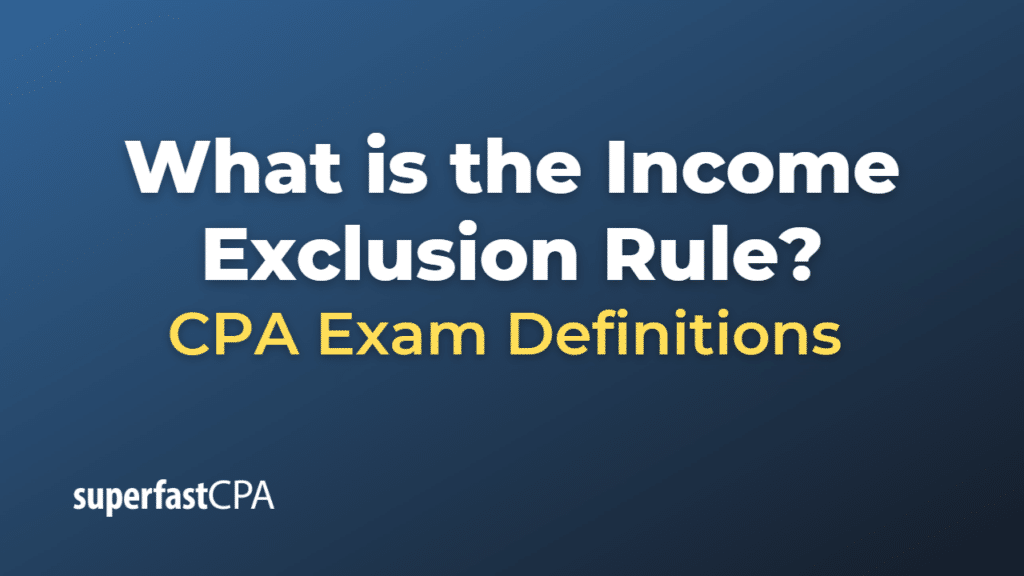Income Exclusion Rule
The income exclusion rule is a provision in U.S. federal income tax law that allows taxpayers to exclude certain types of income from their gross income, thus reducing their taxable income.
There are several types of income that may be excluded under various circumstances. These include:
- Gifts and inheritances: Generally, property or money received as a gift, bequest, or inheritance is not included in taxable income.
- Life insurance proceeds: Generally, life insurance proceeds paid out upon the death of the insured person are not taxable.
- Certain employee benefits: Certain fringe benefits provided by an employer, like health insurance premiums, are often excluded from an employee’s gross income.
- Municipal bond interest: Interest earned on state and local bonds (known as municipal bonds) is usually tax-free at the federal level.
- Foreign Earned Income Exclusion: U.S. citizens or resident aliens who live and work abroad may be able to exclude a portion of their foreign earned income.
- Education-related exclusions: Certain scholarships, fellowships, and other educational assistance may be excluded from income.
It’s important to note that tax laws are complex and have many exceptions and special cases. Therefore, whether a particular type of income can be excluded, and how to do it, might require advice from a tax professional or detailed reading of IRS rules.
Example of the Income Exclusion Rule
Let’s consider an example with the Foreign Earned Income Exclusion, which is a provision that allows U.S. citizens or resident aliens who live and work abroad to exclude a certain amount of their foreign earned income from U.S. federal income taxation.
For the tax year 2022, the maximum exclusion is $108,700. This means that if a U.S. citizen lives and works in a foreign country and earns income there, they could exclude up to $108,700 of that income from their U.S. federal income tax.
For example, let’s say Sarah is a U.S. citizen who lives and works in France for the entire tax year 2022. She earns a salary of $120,000. When she files her U.S. federal income tax return, she can exclude $108,700 of her salary under the Foreign Earned Income Exclusion. This means she will only be taxed on $11,300 ($120,000 – $108,700) of her salary for U.S. federal income tax purposes.
Remember, to qualify for the Foreign Earned Income Exclusion, the taxpayer must meet specific requirements, including having a tax home in a foreign country and passing either the bona fide residence test or the physical presence test. This is just one example of the income exclusion rule. Other types of income exclusions have their own specific rules and requirements.














